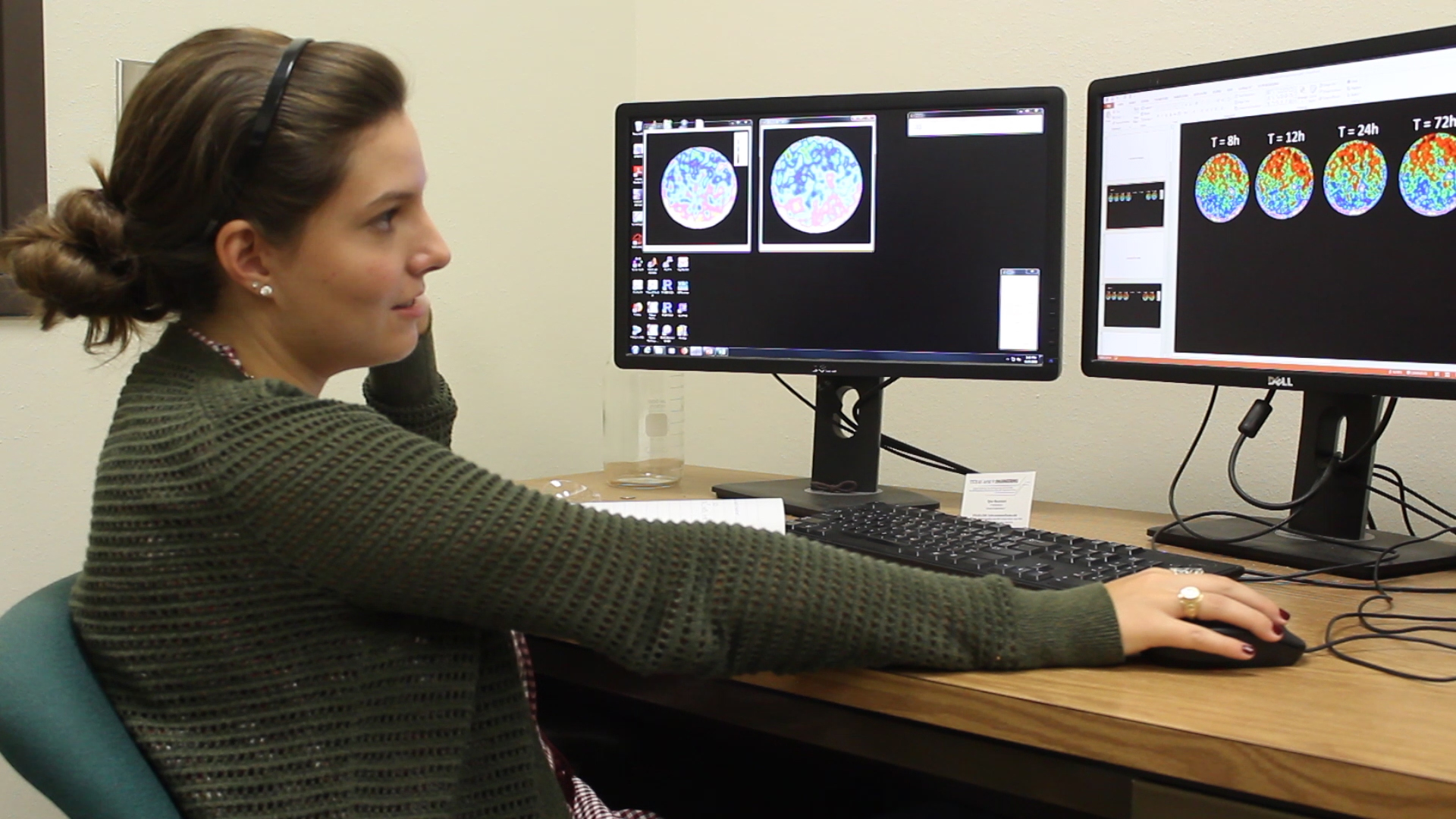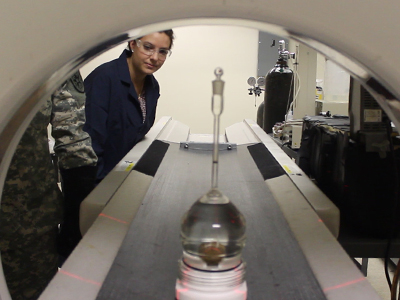
Tell us a little about yourself.
A: I was actually a geophysics major when I first came to Texas A&M University. I have always loved earth science, but I took a class that related geoscience to the petroleum industry and that’s how I found my path. I followed my passion toward the energy industry and being able to help solve problems.
What fascinates you about petroleum engineering?
A: What fascinates me, and this relates to geoscience, is the ability to extract something from the ground in an environmentally friendly and safe way. That’s important to me because I care about the Earth.
When did you first do undergraduate research?
A: I started doing research as a freshman. In the geosciences department they were really big about us getting into research to see what everything’s about and learning to apply our coursework in a different fashion. I was taking a class called Ten Ways to be Wrong and my professor talked about how different things happen in research that make people dispute you and how you have to overcome those disputes because of the nature of science and research. He mentioned to us that he was looking for people to help him on his team, so at the end of the semester I started working on the coastal geomorphology project he had.
What did you learn?
A: We were trying to come up with a method that accurately and efficiently determined what dunes are, both above and below the surface. At the end of the project we established five methods that we thought would always work for identifying dunes.
How did you get involved in petroleum research?
A: I had just come to the petroleum department and was looking for something to do because I didn’t have enough experience to get an internship yet. Companies were like, “You’re on the right path, but we need you to take some more classes.” I talked to my advisor and we went through a list of different professors doing research in our department and how I might fit into what they were working on. I spoke with some of them and found a place with Dr. David Schechter’s research on working with CO2 gas injection and surfactants to see how they impact enhanced oil recovery.

Are there advantages to doing both coursework and research?
A: What I’m learning in the lab relates to my coursework. It’s a bit better than having a traditional course lab on the subject because a lot of those are formulated to give students a result that we then interpret. With Dr. Schechter’s research, we have to figure out how our results relate to what we expected—did we do something wrong or did we learn something new. This gives me a better understanding of what I’m doing in class because I know how the research really applies. I’ve seen the results of the things we talk about theoretically. I think it’s pretty exciting.
Did you go to the career fair, and did you have any companies interested in you because of your research experience?
A: I did go to the career fair. Some companies were very excited to see that I had done research. It gave me something to talk about with them because I didn’t have any other prior experience like an internship. I got to talk about the project in detail since they understood, so we could talk on the same level about it. I also got to show them that something I am doing in-house is being used and affecting the industry in a positive way.
Being able to talk about research at the career fair opened a lot of doors for me to have the opportunity to interview with companies and even get job offers.
What would you tell a friend who doesn’t think they should be interested in research?
A: I would tell them if they are looking for something to enrich themselves, and they didn’t have an opportunity to get an internship, they should find something that they like about the energy industry, or maybe something they don’t know that they like yet, and explore that path. That’s what I did and it’s helped me find out what I want to do when I graduate, what kind of petroleum engineer I want to be. I want to do a hybrid of reservoir and production because my research has taught me how they tie together.
I think a lot of people underestimate what research can do for them and what they can do for research. I encourage people to get involved in it.